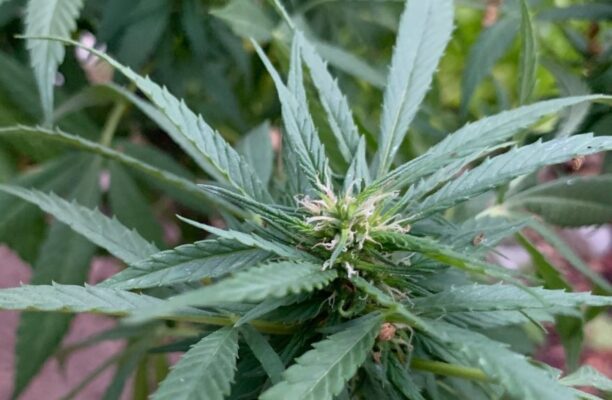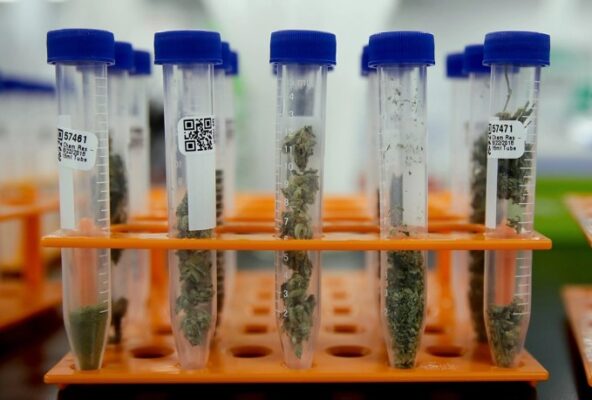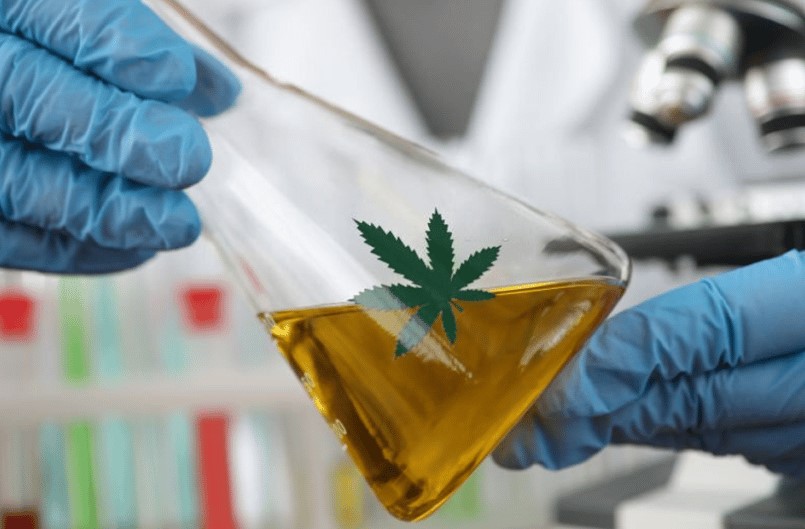Uncategorized
Transparent Cannabis: The Truth About Testing & Inflated THC
Do you remember those smoking sessions that completely blew your mind? What made them so great? Was it the bud’s sweetness, the smoothness of the toke, or the flower’s delightful smell? Whatever your reason, many people choose cannabis because it’s a natural solution; expecting a high level of quality.
At least, that’s what consumers are told they should expect. Many people who use recreational drugs rely on lab testing to better understand what they are buying, while many medical users also depend on accurate lab testing to give them the most effective ratio of cannabinoids. Yet more and more products with inflated THC rates, inaccurate measurements of minor cannabinoids, and pesticides present within are surfacing on dispensary shelves. Without knowing it, many consumers who use cannabis products daily are smoking pesticides, molds, and chemicals. The industry is trembling because of this lack of awareness among product users.
More and more cannabis users are learning about the truth behind testing regulations, which usually benefit those with fraudulent results. With this new perspective, change is beginning to happen in the industry. We believe that this will be one of the most significant events to occur in cannabis since recreational legalization.
Potency Inflation is Controlling a Multi-Billion Dollar Market
Upon marijuana‘s establishment in the business market, bigger companies stepped on a lot of toes. Unlike before where the industry was {powered/filled} by small craft growers and family businesses, these large companies had difficulty meeting consumer expectations for quality. The solution they found was surprisingly easy: to doctor THC numbers and make deals with their testing lab partners while pushing how great high THC levels are to an unwarned public.
Previously, THC was simply a marker of quality in the market. But now, with an ever-growing number of high-THC strains being developed, “THC inflation” has become commonplace In other words, growers are focused on producing higher and higher THC test scores at the expense of important qualities like aroma or taste.
The spread of fake results and high THC levels has done significant damage to the honest growers, labs, and cannabis companies across America. Most have gone bankrupt because they can’t compete with their dishonest competitors who post exaggerated test scores. With so much manipulation and fraud present, it’s hard to compete. It seems like this problem is only going to continue deteriorating.

A History of Losing Regulatory Control
The legalization of recreational marijuana opened up a new market for state-controlled taxation. This, in turn, created the need for greater quality control measures to ensure that only safe products were being sold. Both cannabis lobbyists and professional testing labs saw an opportunity to profit from these changes and so they joined forces to advocated on behalf of their interests. They petitioned that every batch needed to be tested “in order to protect the consumers”; however, what they got in return was high volume testing from labs and a lack of transparency from cannabis entities.
In most cases, regulatory agencies are state-run. However, private labs were given the responsibility in this instance. Unfortunately, it became clear that the labs were not equipped to handle said power, and what was supposed to operate as a regulatory system degenerated into a for-profit scheme.
When a grower fails a test, the common response is to simply switch to a more lenient lab. However, this places an unfair burden on honest labs who are then forced to choose between cheating and losing business.
Many labs throughout the country have begun to express their similar experiences of growers anticipating changed results and dishonest labs giving them false information. This continuing problem promotes dishonesty, developing an echo-chamber, in which the “best” labs are those who give the most easygoing results. These labs made it clear that they did not study science and chemistry so they could be controlled by greedy growers and business people. Some have put their entire livelihoods into their labs and are being forced to cheat as a result. For those that have cheated, they now can be blackmailed due to Racketeer Influenced and Corrupt Organizations (RICO) charges surfacing.
Not only is fraud rampant in the cannabis industry, but most pesticides used haven’t even been tested for danger when combusted. For example, Scientists have yet to determine a cause of Cannabis Hyperemesis Syndrome (CHS), but have related CHS with the use of concentrated THC. Meanwhile, it has been documented that pesticides are up to 10 times higher in a concentrate than they would be if present in the flower alone. It’s obvious that further research is needed. Unfortunately, this isn’t the only problem we’re facing – to make matters worse, oil extraction companies can sell inferior batches of oil to dispensaries by using testing stickers from a batch that did pass. The combination of these two factors – lack of reliable research and fraudulent results – have resulted in a monopolistic wholesale cannabis market which ultimately endanger consumers.
In order to ensure the validity of test results, governing bodies need to set strict regulations for testing labs. Otherwise, these businesses may feel inclined to doctor their findings in order better their chances of staying afloat.
What Needs to Change?
What so many are pushing for is transparent testing. The ideal outcome would remove the business relationship between labs and cannabis entities. Legal language needs to change in order to establish a stronger degree of enforcement for testing regulations and compliance. Labs need the ability to operate as regulators, test results need to be released to the public, and the consumers need to actually be protected.
Private labs should only be contracted by state agencies, and the farms should pay for these tests. This would permit high-volume testing while also preventing potential pressure from the farms that could lead to fraudulent results.
A simple software solution could track licensed labs and growers, and select which product batches are sent to which labs, and which labs visit dispensaries and test which batches.
Growers and labs that are caught cheating should face new, more severe consequences. In most industries, if you commit fraud your license is taken away from you. However, in the cannabis industry, people have only received small fines. For example, two labs in Florida recently received fines between $2,000 to $6,000 for lying about THC levels.

The Cannabis Community Needs to Take a Stand
The large corporations are in for a rude awakening; the popularity of cannabis is due to the counterculture movement. As this story develops and becomes more important to those involved, activism will become a regular occurrence in every state where it has been legalized.
Your voice matters! Show your support for craft growers and small farms.Make it known to the dispensaries and labs which sellers are honest and care about consumer safety. If a product is harsh or causes adverse reactions, make sure the dispensary and others who may potentially purchase that product are aware. Warning signs of pesticides include a sore throat, headache, or nausea. If growers want to improve the quality of their product, they need to start getting feedback when something goes wrong. This way, they can learn what consumers are looking for and make changes accordingly. Some key things that cannabis users look for is a clean taste and smooth smoking experience. By demanding this from these companies, it will force them to rebuild grow systems and control the environment better – thus giving us a higher quality product in return.
Test scores that are high generally mean that the sample wasn’t handled properly. The dispensaries selling products with THC levels >30% know they’re selling artificially inflated products.
If this pattern of dishonesty continues, it could result in serious long-term harm to consumers. Those who have been lied to should be concerned and take action. If cannabis businesses are aware that they are deceiving people, they need to stop immediately.
More About Trent Hancock
Trent Hancock is the primary breeder for Creswell Oreganics and an owner of Crater Enterprises (the parent company of Creswell Oreganics). He began indoor growing in Portland’s acclaimed cannabis community in 1998. In 2008, he went on to construct his first commercial grow operation in Montana. For the next 8 years, Trent consulted some of country’s largest indoor cannabis facilities located in Montana until 2014 when Colorado took over. Realizing that large-scale commercial grows had bug and mold problems that were nearly impossible to control without spraying flowering plants, he started developing a controlled air system that prevented the need for spraying.
In 2014, Trent partnered with ShayNEY Norick at her medical cannabis company located in Montana. With the resources available to him, he used his Navy Seabee dad’s low voltage electronics experience to construct his first control panel; this was also the first control panel ever created that would bring in high volumes of fresh air while running high altitude temperature algorithms. In April of 2016, the Montana Supreme Court made a ruling that temporarily shut down Cannabis industry. However, Trent was convince that Shayney should sell and move to Oregon where they started Creswell Oreganics because he saw potential in its future.
Trent is always seeking what’s best for the consumer and works diligently to make certain they have access to products that are as clean as possible. He strives to better growing environments and develop ways of keeping flowering plants from being exposed to harmful sprays.
For Trent, the most rewarding part of his role in the Cannabis community has been informing consumers and fighting legislation that works against small businesses and consumer safety.


